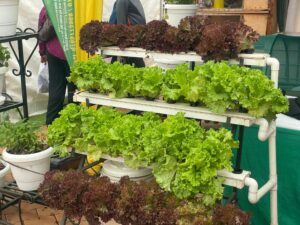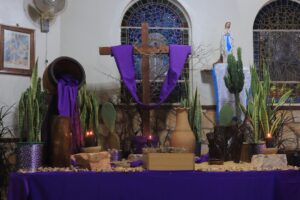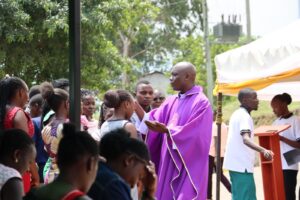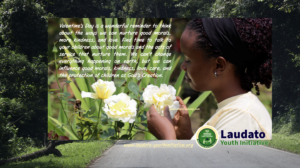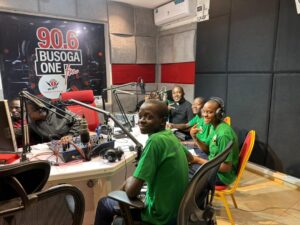Abstract
This paper explores how the Laudato Youth Initiative (LYI) in Uganda leverages digital innovation and faith‑based environmental action to advance SDG 13 (Climate Action). It examines their exhibitions and projects on recycling, organic farming, solar energy, and plastic management, that were recently developed by the Laudato Si Club of Holy Cross Lake View S.S.S during the Laudato Si Green Festival highlighting outcomes, challenges, and local‑to‑global lessons.
Introduction
Uganda is among the African countries most vulnerable to the effects of climate change, including unpredictable rainfall, loss of biodiversity, and food insecurity. With over 70% of its population under the age of 30, the youth are a critical demographic in driving sustainable development and climate action (United Nations Development Programme [UNDP], 2023).
Inspired by Pope Francis’s encyclical Laudato Si’, the Laudato Youth Initiative (LYI) promotes environmental stewardship among young people by integrating ecological spirituality, community/ public policy engagement, and digital communication (Laudato Youth Initiative [LYI], 2024a). Through exhibitions and training in recycling, plastic management, organic farming, and solar energy, in so doing LYI offers a grassroots approach to implementing SDG 13 in Uganda through is implementing arm of Laudato Si Clubs.
The Laudato Youth Initiative: Structure, Vision, and Reach
Operating from the John Paul II Justice & Peace Centre in Kampala, LYI coordinates over 16 Laudato Si’ Clubs across secondary schools, universities, and communities in Uganda, Kenya, and Tanzania, impacting over 10,000 youth (LYI, 2024a). The initiative emphasizes the fusion of ecological awareness with Catholic Social Teaching, African traditional wisdom, and modern technology. It also engages in public campaigns (Green Walk), tree planting and storytelling through digital platforms to extend its reach and advocate for systemic climate action (LYI, 2024b).
Digital Innovation and Local Climate Action
3.1 Recycling and Plastic Management
During the 2025 Laudato Si’ Green Festival in Jinja, students showcased innovations such as smart dustbins and tech-driven waste separation mechanisms, contributing to efforts against single-use plastics (LYI, 2025a). Participants also committed to refusing disposable plastic bottles at events, promoting reusables—a policy later adopted by 17 faith-based organizations under the Uganda Laudato Si’ Consortium (LYI, 2025b). Read more
3.2 Organic Farming and Agroecology
LYI clubs provide training on organic manure, kitchen gardens, biodiversity restoration, and agroforestry. These activities combine traditional ecological knowledge with modern regenerative farming techniques to ensure sustainable food systems and improve soil health (LYI, 2024c).
Tree planting campaigns, like the “One Million Tree Planting” initiative, involving detailed monitoring (Growing the Trees) to promote accountability and tree survival rather than mere ceremonial planting (LYI, 2025c).
3.3 Solar Energy and Clean Technology
While LYI does not directly provide solar installations, it promotes knowledge about the importance of clean energy and raises awareness encouraging its institutions to adopt celean energy like solar and raise awareness through exhibitions and partnerships. For example, NGOs like the Joint Energy and Environment Projects (JEEP) support youth by providing solar cooking and rural lighting solutions we commend their efforts and encounrage more people to borrow an inspiration from (Joint Energy and Environment Projects [JEEP], 2023).
Our Laudato Si Clubs clubs, in turn, use digital media to disseminate learnings from such information and encourage communities to adopt solar technologies and sustainable practices like the work being done by Bethany Lands Institute and Avail Fruits of Faith Farm.
3.4 Climate Education and Digital Storytelling
LYI amplifies youth voices through school exhibitions, poetry competitions, Parliamentary debates, and digital platforms such as YouTube, social media, and the Laudato Voices magazine. These storytelling initiatives raise awareness of climate challenges while grounding them in faith-based values (LYI, 2024d).
Outcomes and Impact
The initiative has achieved notable success in raising ecological awareness, influencing behavioral change, and embedding sustainability in faith-based education. Over 10,000 youth have participated in Laudato Si’ Clubs, which serve as catalysts for peer education and community mobilization (LYI, 2024a).
The adoption of a plastic-free events policy by faith-based networks and the cultivation of long-term ecological behaviors such as tree care reflect the depth of behavioral transformation (LYI, 2025b).
Challenges and Lessons Learned
Despite its success, LYI faces several challenges:
• Ensuring long-term sustainability of planted trees and gardens.
• Funding limitations for scaling up solar energy and recycling technology.
• Bridging the gap between digital awareness and hands-on implementation, especially in rural settings that require more mobility needs. This has not failed our work it has encouraged us to do more and reach these people via the media platforms like radios and apppreciate cultures by providing programs in local languages because of this continuous community engagement, integration of local traditions, and partnerships with technology providers remain essential for scaling up LYI’s work (LYI, 2025c).
6. Recommendations
1. Expand Monitoring & Evaluation frameworks to measure real-world environmental impact.
2. Develop partnerships with local innovators and NGOs like Bethany Lands Institute and Avail Fruits of Faith Fram for practical training.
3. Integrate climate education into formal curricula using hybrid (digital + physical) methods.
4. Leverage faith-based storytelling to deepen moral commitment to climate action.
5. Foster youth-led research to inform national climate strategies and international advocacy.
Reflecting on the recently concluded Laudato Si Green Festival, the Laudato Youth Initiative stands as a model of how faith-based digital innovation can drive local implementation of global goals such as SDG 13. By merging spirituality, youth leadership, and sustainability, LYI shows that grassroots movements are powerful catalysts for climate action. With the right support and strategic expansion, LYI’s model can be replicated across similar contexts in Africa and beyond.
References
Joint Energy and Environment Projects. (2023). About JEEP Uganda. https://en.wikipedia.org/wiki/
Laudato Youth Initiative. (2024a). About Us. https://laudato-
Laudato Youth Initiative. (2024b). Laudato Si Clubs and Youth Engagement. https://laudato-
Laudato Youth Initiative. (2024c). Rebranding African Wisdom for Climate Action. https://laudato-
Laudato Youth Initiative. (2024d). Programs: Digital Storytelling and Eco-Spirituality. https://laudato-
Laudato Youth Initiative. (2025a). Laudato Si Festival 2025: Seeds of Peace and Hope for Creation. https://laudato-
Laudato Youth Initiative. (2025b). Laudato Si at 10 and the Rise of Uganda’s Ecological Faith Consortium. https://laudato-
Laudato Youth Initiative. (2025c). Rethinking the Role of Corporate Climate Action. https://laudato-
United Nations Development Programme. (2023). Uganda: Climate Action and SDG 13. https://www.undp.org/uganda









